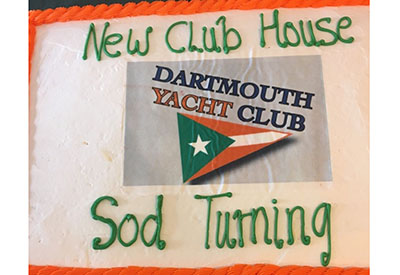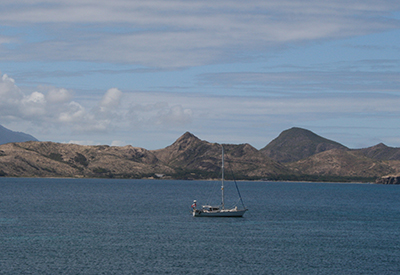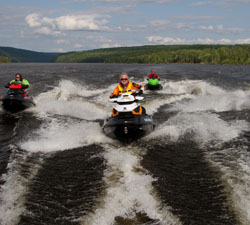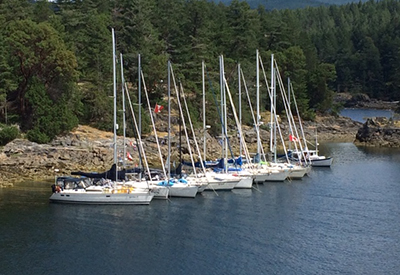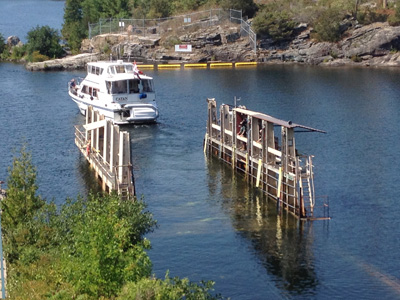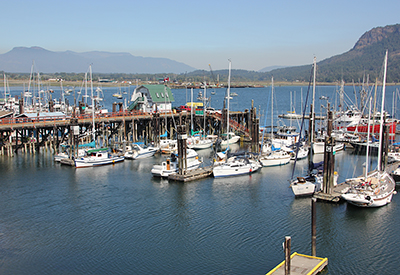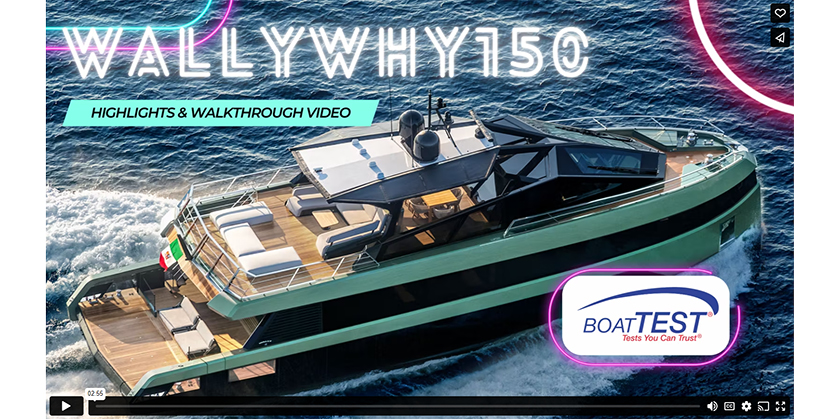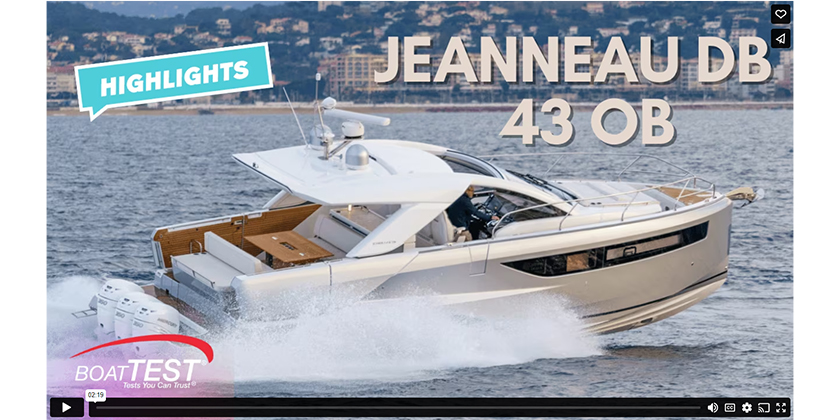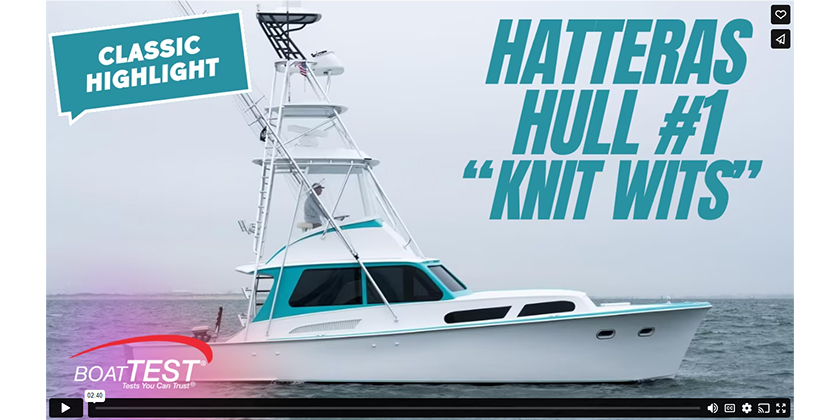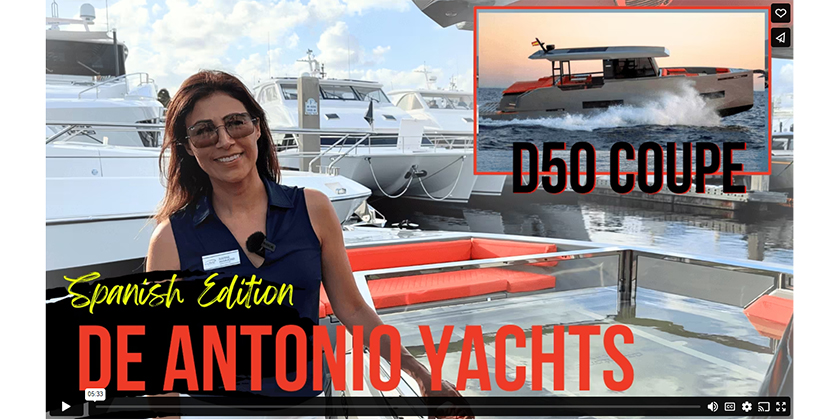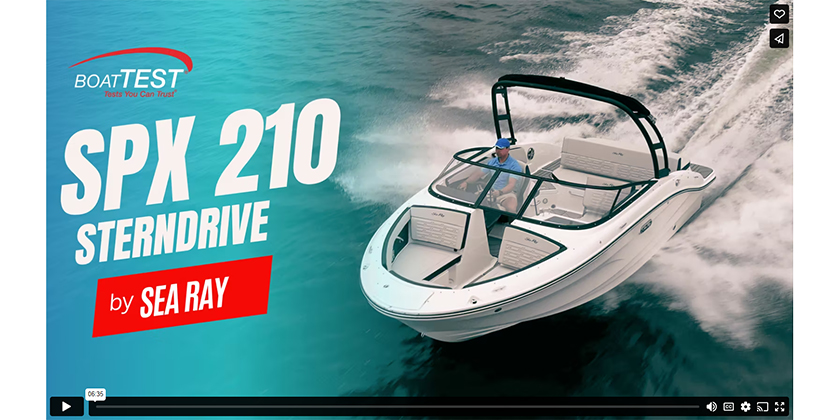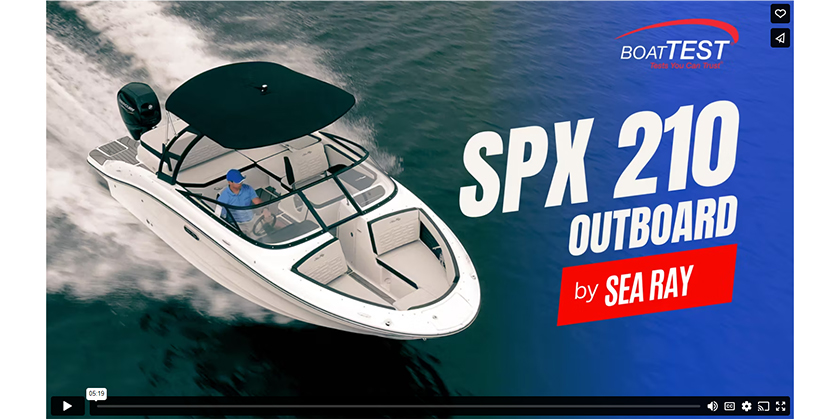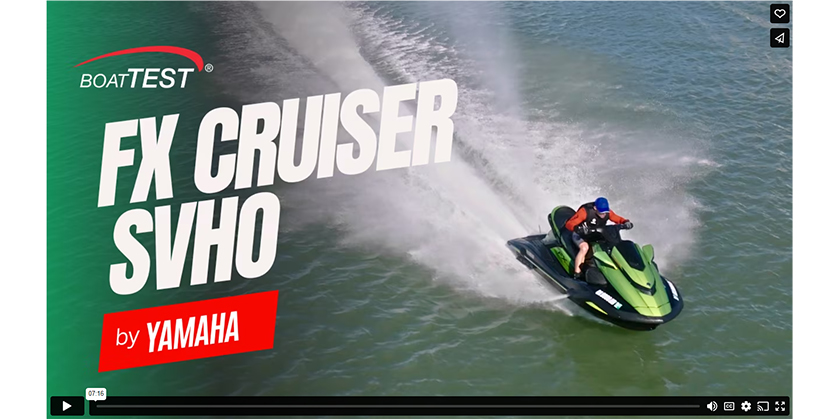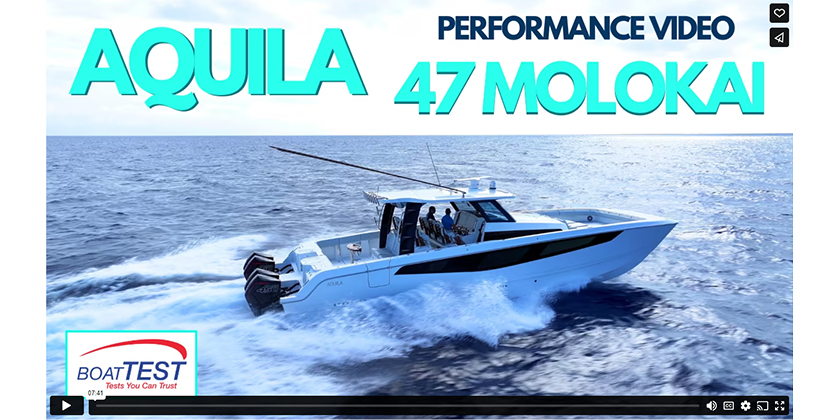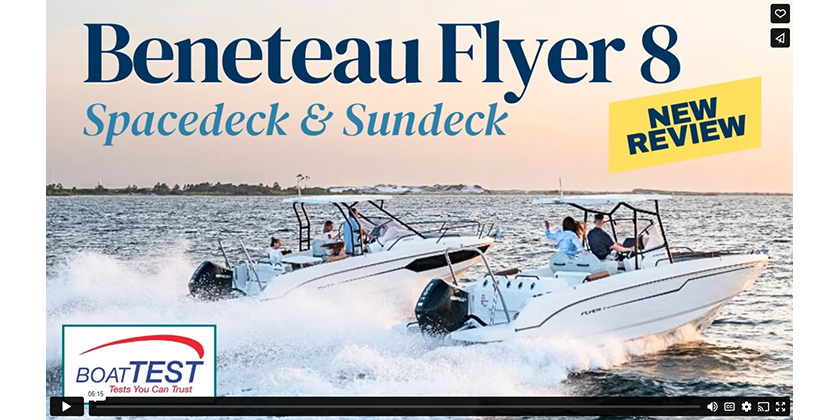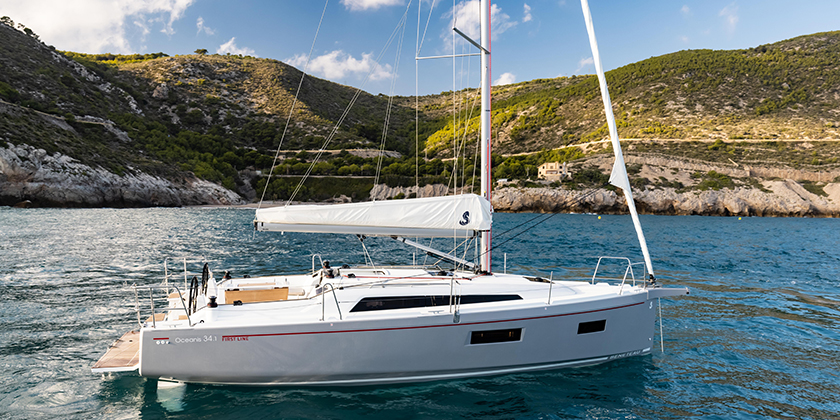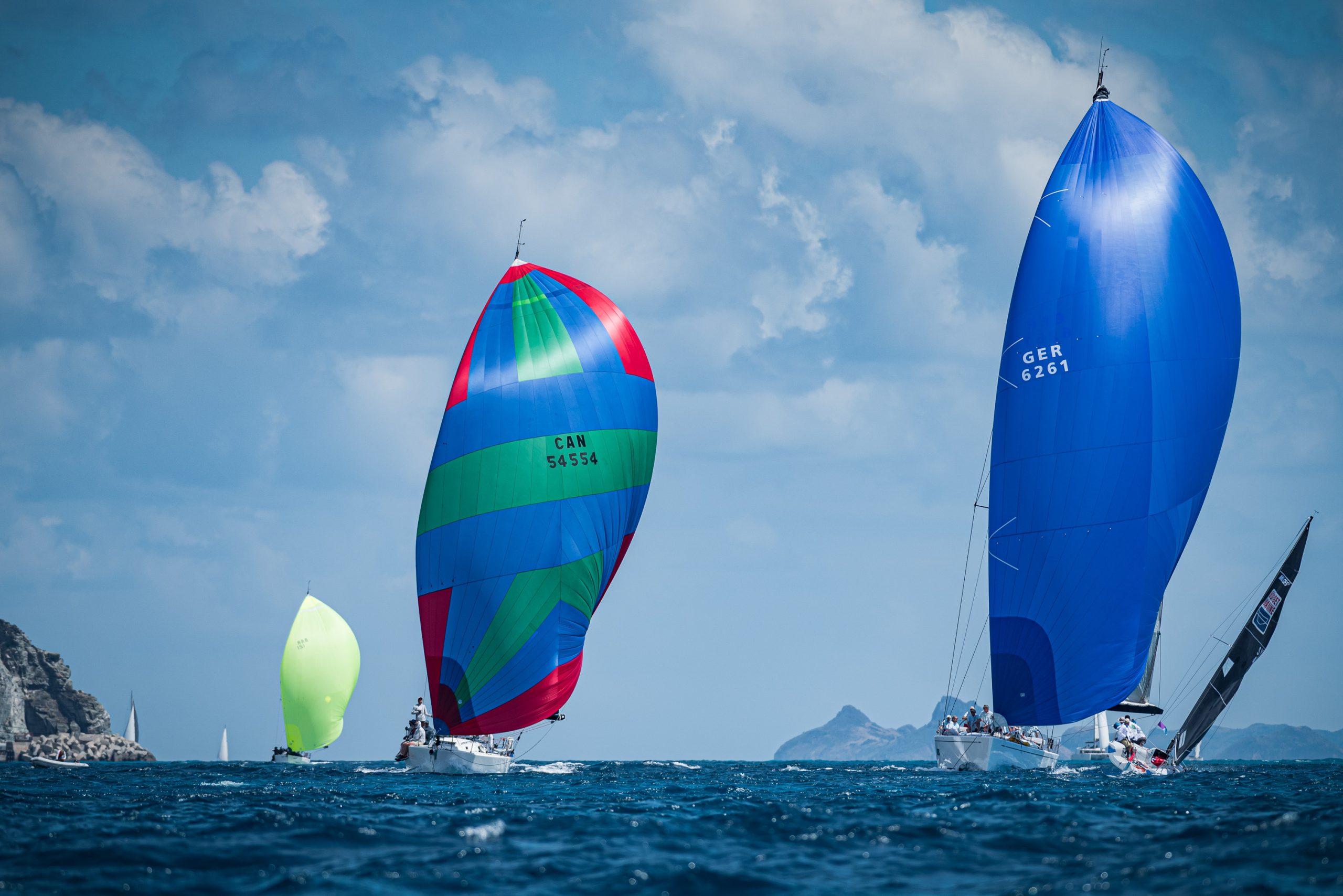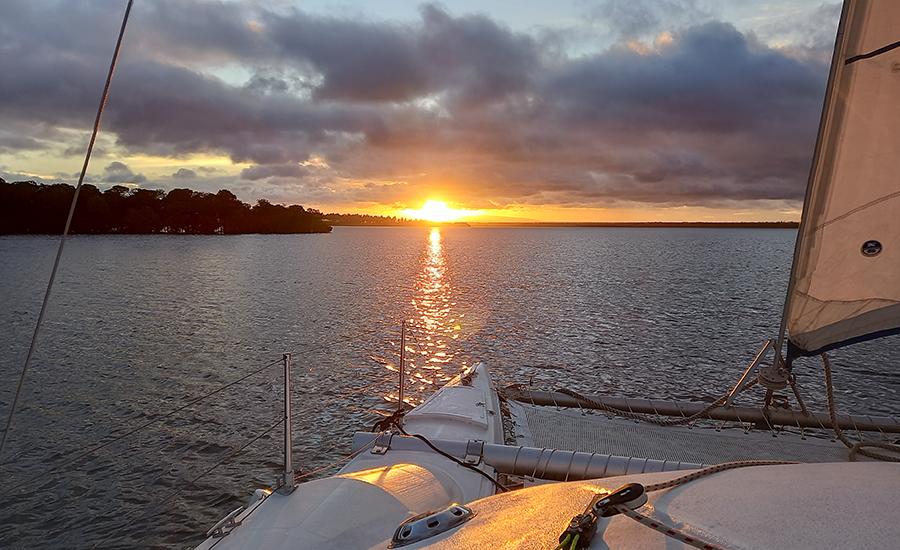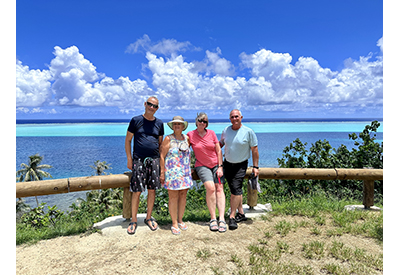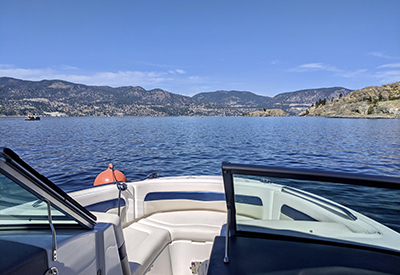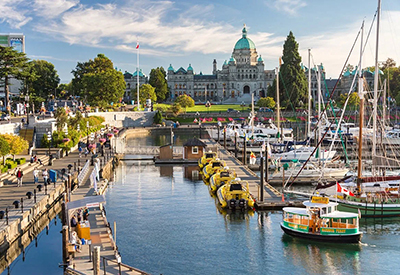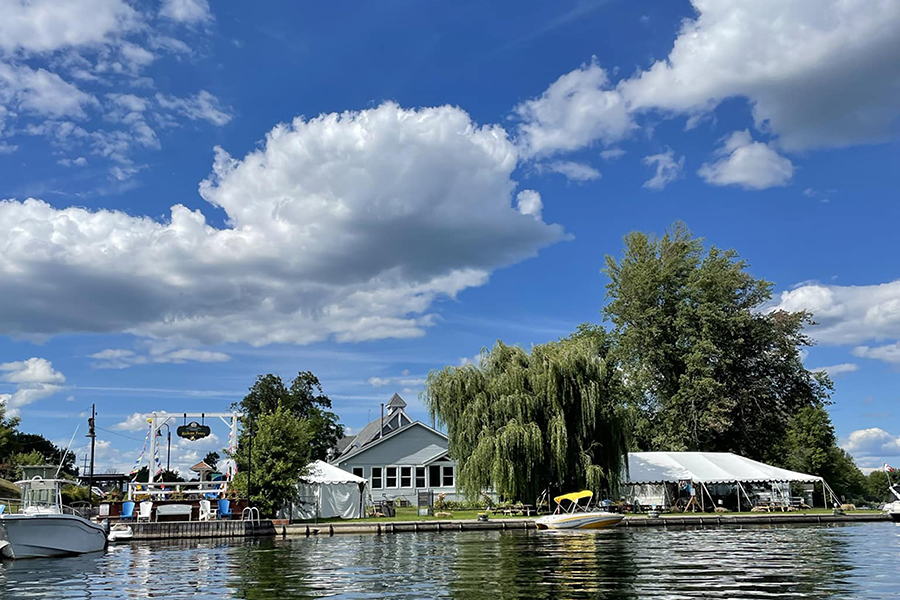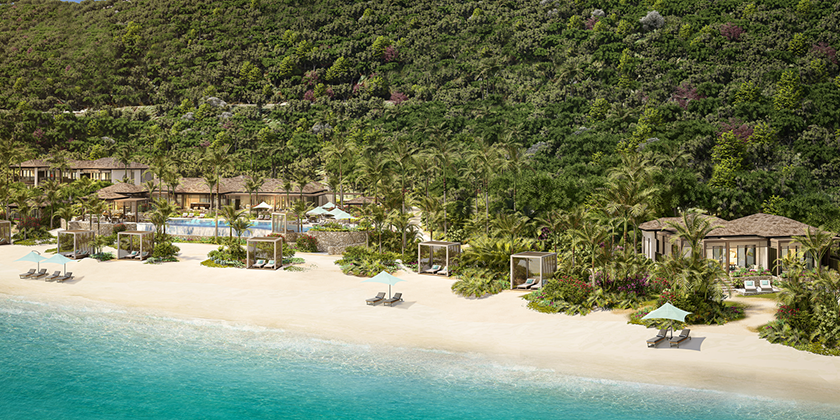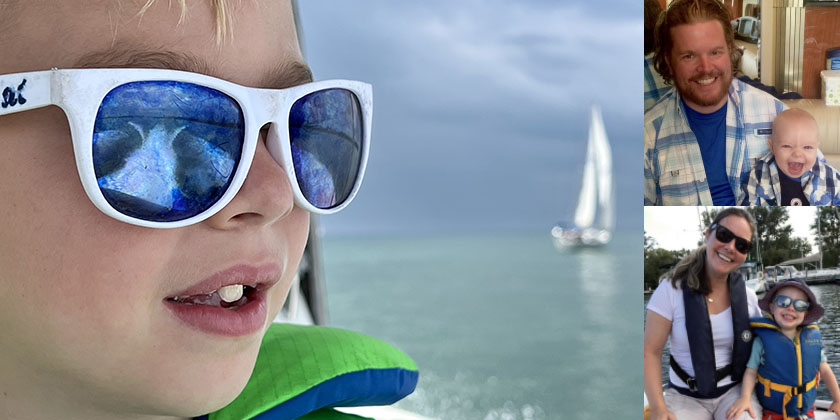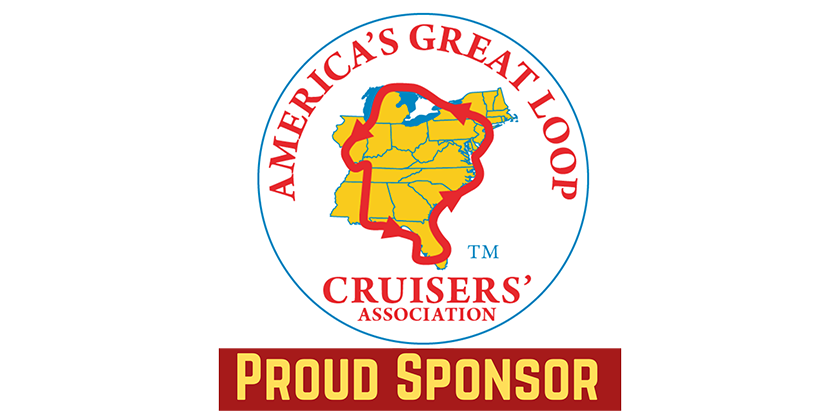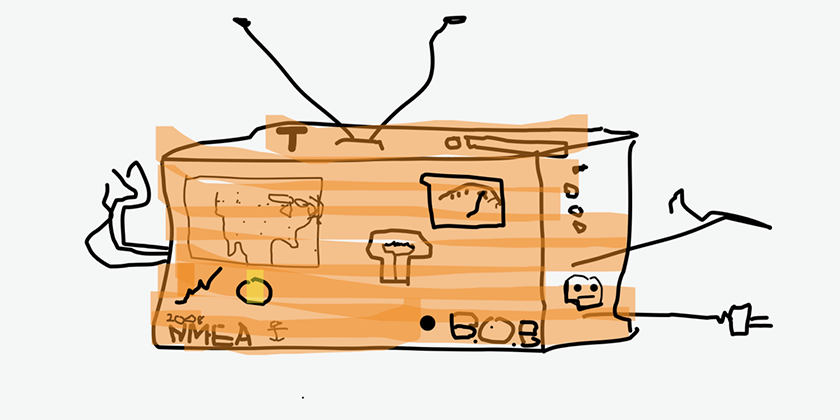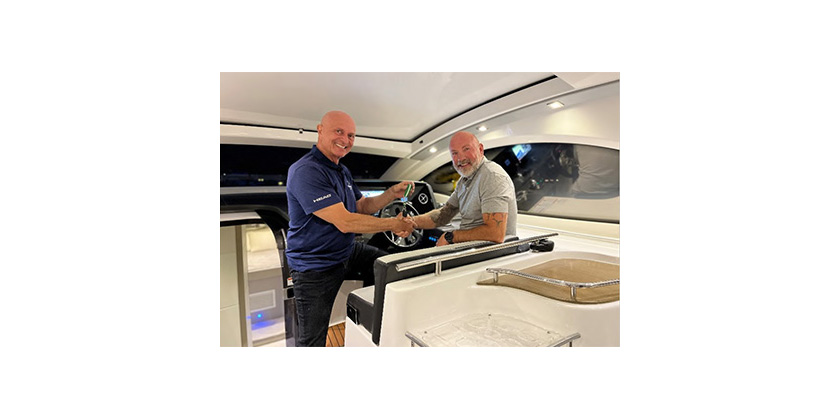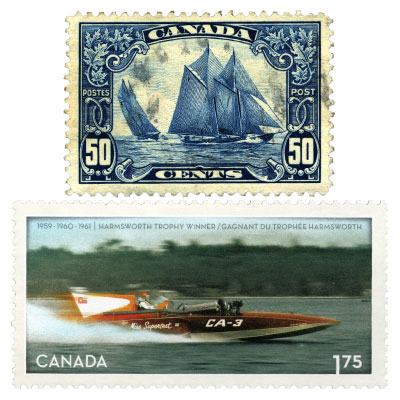How to be as Polite as a Canadian at Gulf Island Marine Park Anchorages
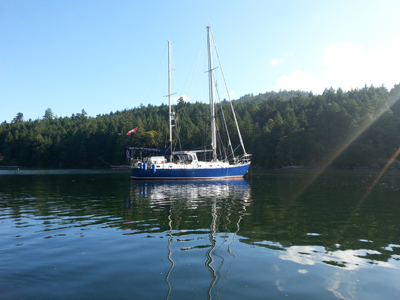
Story and photos by Catherine Dook
Inuksuk at anchor Genoa Bay 2017
One summer I sold ice cream and knick-knacks at Montague Harbour Marina. I was standing behind the counter one day, when the phone rang. “There’s a boat at anchor in the middle of the bay that’s been playing loud music for three hours,” complained an irate-sounding male voice. “Can you make them stop?”
“Um, no,” I replied. “The marina has no jurisdiction over the anchorage. Besides, my only weapon is a till.” The man hung up on me.
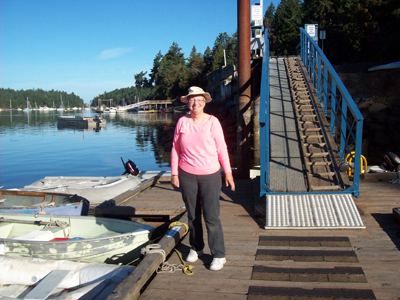
Montague harbour 2017 government dinghy dock #2
Now when you think about it, you can understand why the poor fellow was annoyed. The anchorage at Montague Harbour is part of the Gulf Islands Provincial Park system, and SOMEONE should oversee things and enforce the rules, but truth is that any Canadian park, provincial or national, has too few employees to cover the vast areas that are protected. In addition, the Gulf Islands are a bewildering mixture of provincial and federal parks and private property, but the general code of conduct is the same in the Provincial system as it is in the Federal Gulf Islands Marine Park system. Because the solitude and lack of oversight is part of the charm of the whole experience, the Canadian Government, whether provincial or federal, expects residents, visitors, transients, and looky-loos to just flat-out be polite. Yes, polite.
Canadians pride ourselves on our manners and most of the time we don’t do too badly. I couldn’t speak to the nationality of either the music-lover at anchor or his long-suffering neighbour, but I will say this: hanging up on me was a breach of etiquette. I was quite indignant.
If a hang-up phone call can upset a Canadian, imagine the effects of liquor, excessive speed, and firearms. Liquor is tolerated in the privacy of your (parked) boat or campsite in moderation, speed is frowned upon, and firearms are forbidden. Canadian boaters settle disputes with logic and occasionally pike poles, but raise your voice or swing a pike pole threateningly and someone will tell the RCMP on you.
There are many beautiful anchorage sites in the Gulf Islands Marine Park System and all of them amplify noise across water. That high-pitched screaming we heard one summer from the beach at Montague Harbour (provincial) was only some would-be swimmers testing the temperature of the ocean water in the heat of July. They weren’t being rude, they were staving off a heart attack. I know because I frightened some boaters in one of the anchorages at Portland Island (Federal) one summer using a bathing suit and the same method. So – no excess noise unless your body is unexpectedly forced into an extremity of shrieking hypothermia.
All the Gulf Island anchorages are no-dump zones. No-dump means use your holding tank, your composting toilet, or as we did one memorable summer, your bucket. Now a bucket might seem like a disagreeable option, but most marine parks boast pit toilets of surpassing beauty and hygiene, and besides, the best of my social encounters that summer were on bucket runs.
Slap a flat piece of plastic fastened with a string on top of your bucket, and you are welcome anywhere.
“So, what do you have in the bucket? Crabs?” asked one friendly man. “Well, no,” I replied, and so began a most agreeable conversation on the nature of aerobic decomposition.
Another time I met a woman who had also read Benvenuto Cellini; we walked for a while together, and as the bucket clanked and sloshed between us, I invited her and her children to tour our boat. Such a lovely woman and what adorable children.
Trash is something else one doesn’t throw overboard. Pack it out. Here and there the government has gone to the trouble of installing bear-proof garbage disposal units with a polite sign asking for $2.00 for every bag you deposit. On a Gulf Island, $2.00 to dispose of garbage is a bargain and you should be grateful to pay it.
There are other rules too, such as not operating your vessel or anchor in water of a depth less than ten metres. This is for the protection of eelgrass. Eelgrass might not seem like such a big deal, but it protects many sensitive juvenile species and West-coast Canadians are very attached to it.
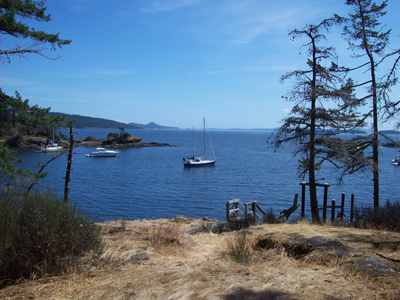 Portland island 2017 princess bay & Inuksuk
Portland island 2017 princess bay & Inuksuk
Years ago, an American production company filmed part of the movie ‘The Fog’ at Cowichan Bay (NOT a Gulf Island anchorage, but it’s lousy with eelgrass). During one scene, a beautiful and half-naked actress was expected to fight some seaweed in a water tank, and a local reporter, not at all interested in her beauty or state of undress, wanted an assurance from the director that no eelgrass had been injured or killed during the filming of the scene. The director stopped just short of rolling his eyes, but you catch my drift on the Canadian earnestness about the environment. Some of this wears off farther east, but West-coasters are as rabid as Canadian environmentalists get, so tread lightly on the water.
This includes watching your fuel. Do not slop any diesel and do not discharge bilgewater in anchorages, but you knew that already.
The wildlife you may encounter is not unlike your Canadian neighbours at anchor – wary, introverted, and unwilling to be disturbed. The polite, indeed the Canadian, thing to do is to skirt around them and allow them to approach if they feel confident. This includes seals, sealions, whales, birds, and other forms of wildlife, like tourists. Once, while at anchor in Bedwell Harbour (CLOSE to a Gulf Island marine park), in the middle of the night, a very large whale scraped his back against the length of our 50,000 lbs. vessel, lifting the stern clean out of the water and considerably startling the entire crew. I am very proud that we did not traumatize that barnacle-scraping darling, even though we came closer to him than we’d ever imagined we would.
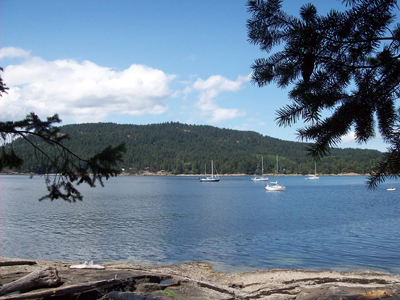 Saltspring Island from Russel Island
Saltspring Island from Russel Island
Whales communicate using sound, so engine noise confuses them. Seals will approach if you are quiet and they are friendly. One summer, a seal hanging around Genoa Bay (also close to Gulf Island marine parks) popped his head up every time I rowed past him singing. He seemed to like ‘Molly Malone.’ However, nobody goes near sealions unless they are crazy, because sealions are large, unpredictable, aggressive, and smell terrible in hot weather. They smell terrible in cold weather too. In fact, they smell dreadful all year round. Stay upwind of them. I’m as fond of nature as the next person, but I’m not a big fan of sewage and rotting fish. Macbeth famously complained the ‘multitudinous seas incarnadine’ couldn’t wash his hands clean of blood; I am as bewildered that a whole ocean can’t wash the stink off a sealion, but such quandaries are part of the Gulf Island Marine Park experience and must not be underrated. That being said, you the visitor are held to a higher standard of cleanliness than the sealion who is belching fish and staring at you from the rocks off Portland Island (Federal).
This means that on land you are asked to leave no trace. Anyone planning to park on land is asked to camp in a designated site, or failing that, a non-vegetated site below the high tide line. Do not beach your dinghy on a midden or a site with eelgrass or kelp. If it’s a good landing site, it has probably been used for thousands of years and may be an archeologically sensitive area. It should therefore be treated with respect. This means you do not pocket interesting-looking artifacts, even shells from middens. You probably won’t be arrested for doing this, but you are asked politely not to. The same goes for rocks, seaweed, and small intertidal wiggling beasties. Fishing is allowed in season, provided you have a licence.
Before considering a campfire, you must determine if one is permitted. If the green light has been given, you must use a designated site or pack in your own portable system. The ocean salt soaked into driftwood will release toxins into the air if it is burned, so bring your own fuel.
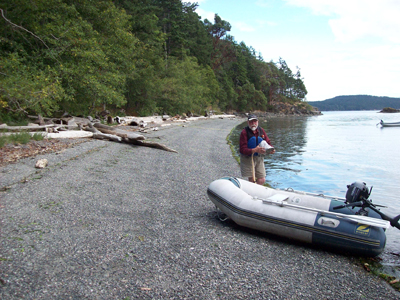 beach princess bay portland island – fixing the dinghy after we fouled the boat prop
beach princess bay portland island – fixing the dinghy after we fouled the boat prop
Disposing of human waste on land is a little more difficult than when on a vessel with its own system, but once again, I refer you to the beautiful pit toilets commissioned and maintained by the Canadian Government. Like most boaters (and people who used to live in Canada’s Arctic), I have an unhealthy, over-interest in sewage and know more about it than is acceptable at cocktail parties, but the short version is that the pit toilets at Canadian campgrounds are perfectly fine. You must use them. It is not acceptable to leave human waste, even urine, in an intertidal zone. If your park does not have a toilet handy when nature calls, it is suggested that you dig a small hole 15 centimetres into the humus layer and 30 metres away from any water source. Cover your deposit with soil and carry any paper back out with you.
Don’t leave garbage on land any more than you would throw it into the water. Do not burn or bury it, but take it back to your boat and save it for the next official garbage deposit site you find.
Do not be offended if, when you ask for a service from a private business, some mean person says ‘no.’ Gulf Islands don’t have much water for showers or space for garbage or facilities for sewage disposal. Because the Gulf Islands include private property, you must stay off private docks and mooring buoys that someone owns and be respectful of businesses. For example, the Montague Harbour Marina owners don’t like dinghy-tie-ups unless you’re a customer, the government dock next door has a two-hour time limit before you are asked to pay, and the wharf across the bay in the provincial park allows free dinghy tie-ups but charges $2.00 a metre for overnight moorage of larger vessels. Any diesel you might spill at the marina gas pumps pollutes the marine park. The friendly tour guide you’re talking to at Russel Island (Federal) is probably a great-great grandchild of Maria Mahoi, the daughter of the original Kanaka owner of the island. (Kanakas were Hawaiians indentured by the Hudson Bay Company in the mid-1800s). Some of the property adjacent to Winter Cove on Saturna Island (Federal) is private – don’t stray from the picnic areas because you might be trespassing.
For more detailed admonitions on the use of the Gulf Islands I refer you to two pertinent websites, www.pc.gc.ca/en/pn-np/bc/gulf/index and www.env.gov.bc.ca/bcparks/. Like the golden rule, it’s all really quite simple. You must be polite – as polite as a Canadian. You’ll be fine.
You can buy Catherine Dook’s books at http://catherinedook.com

